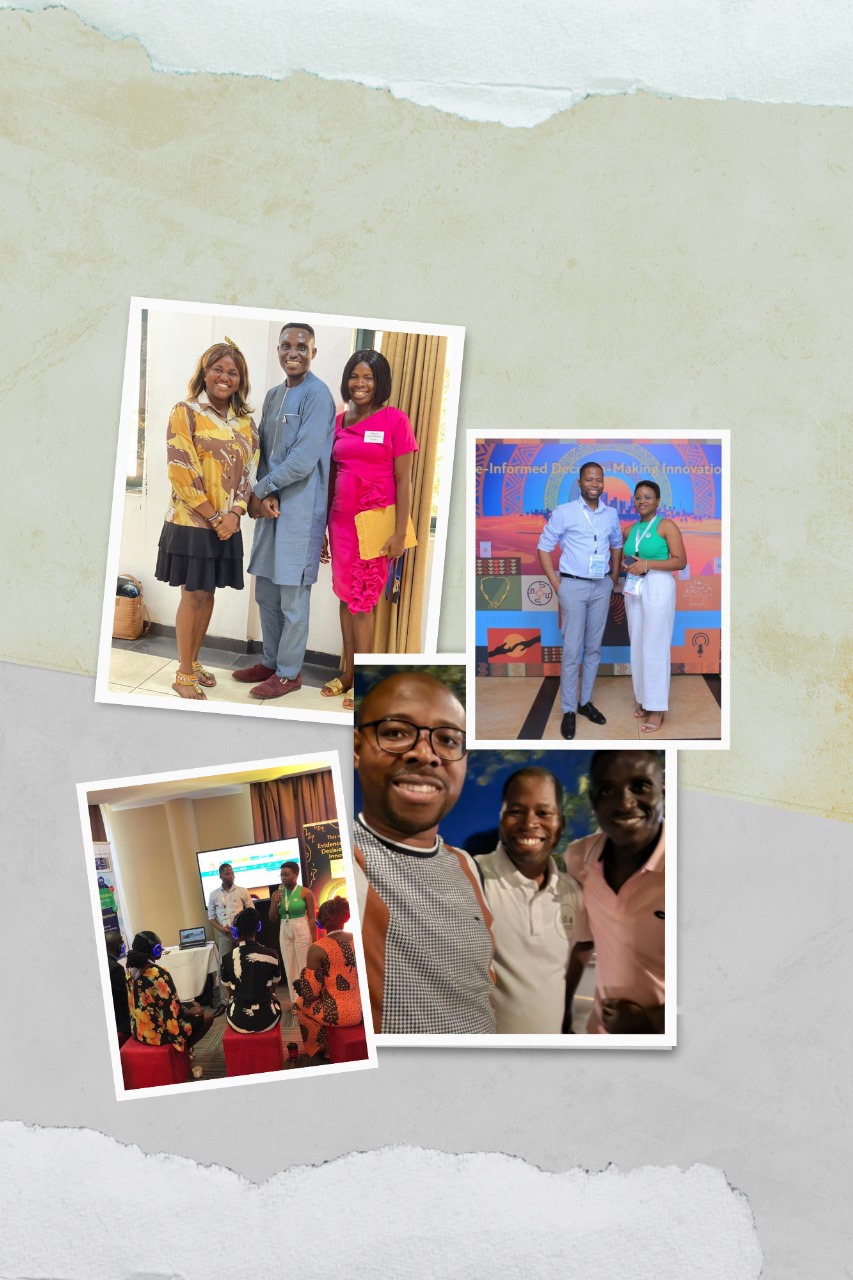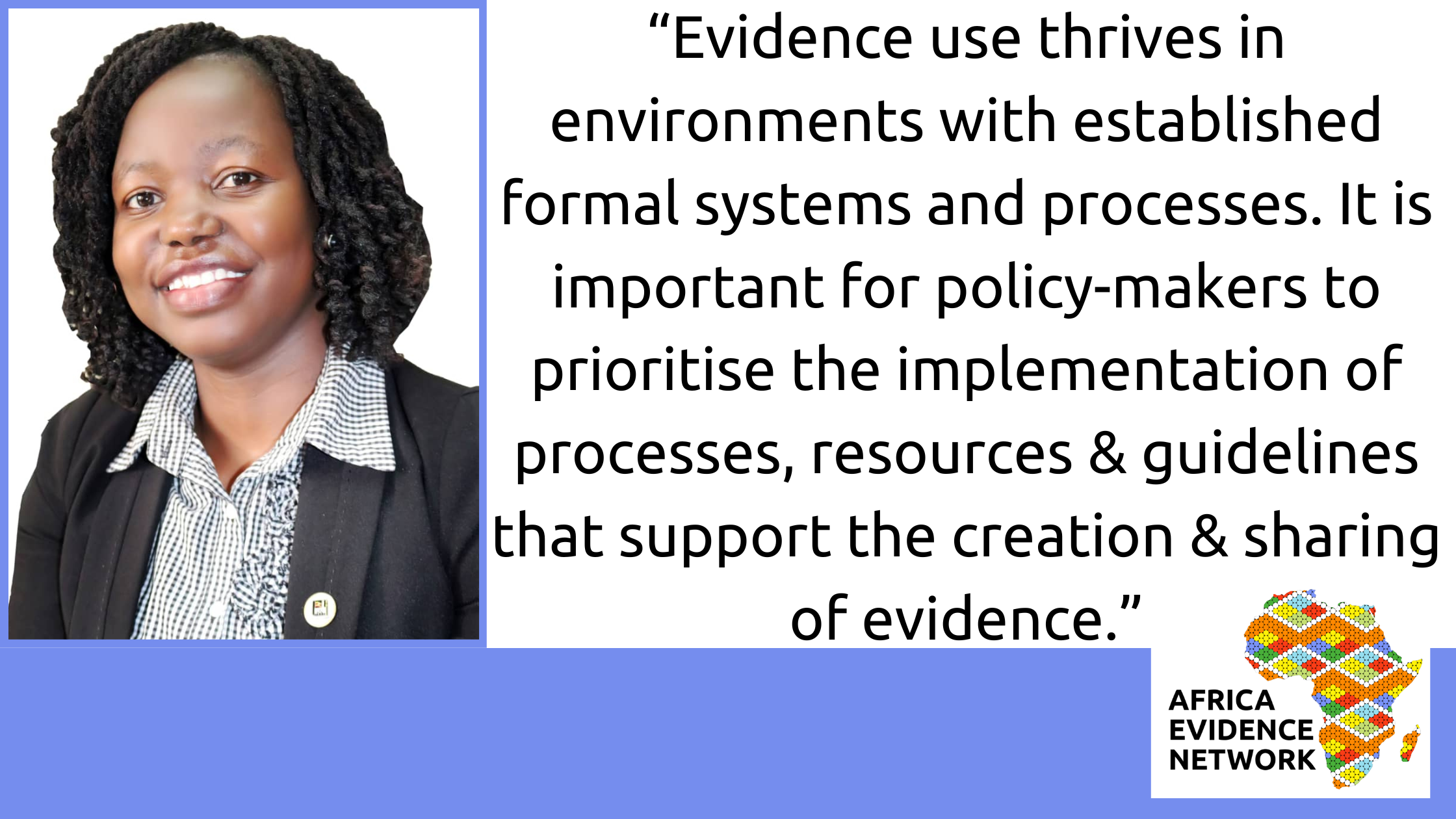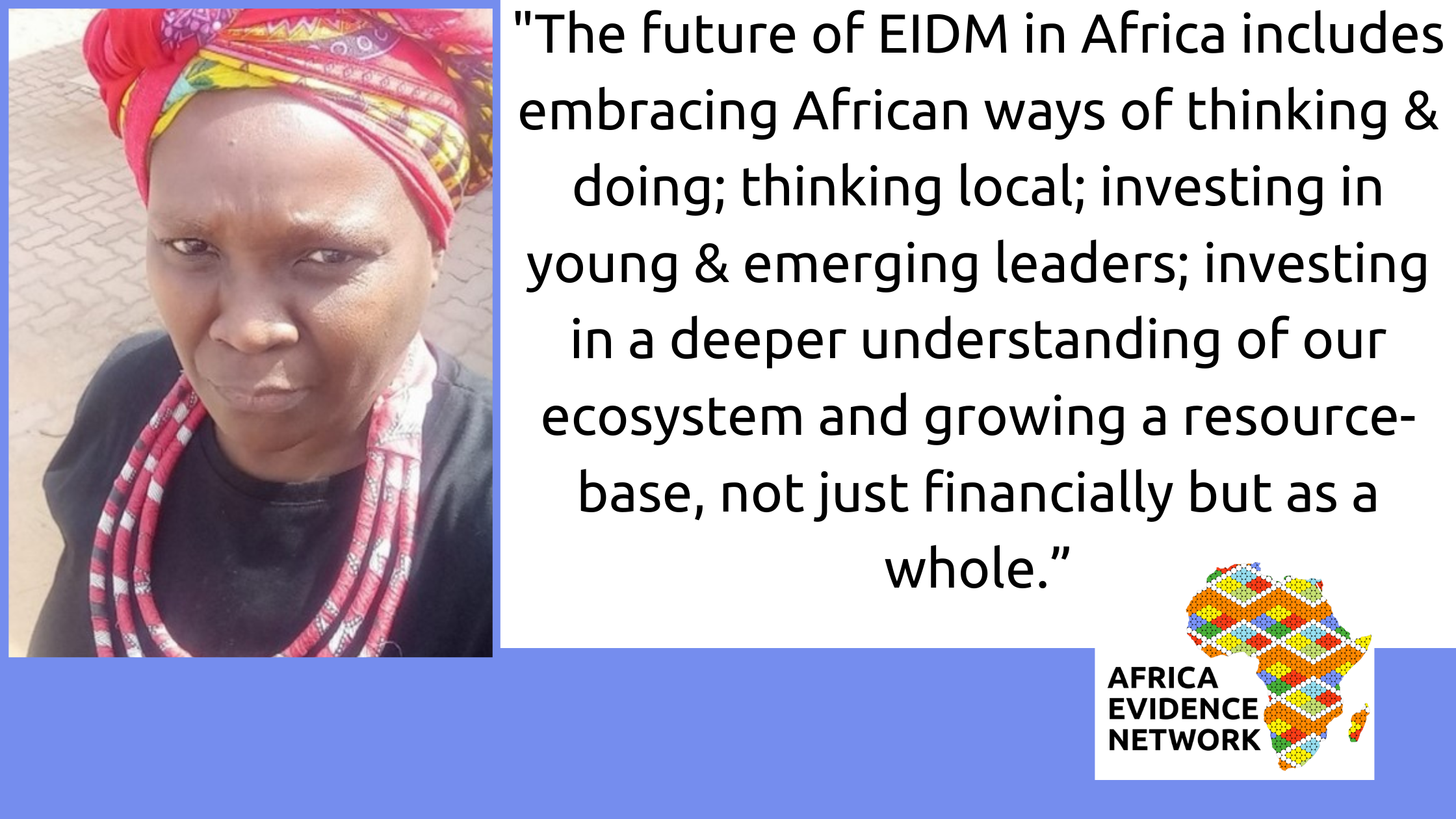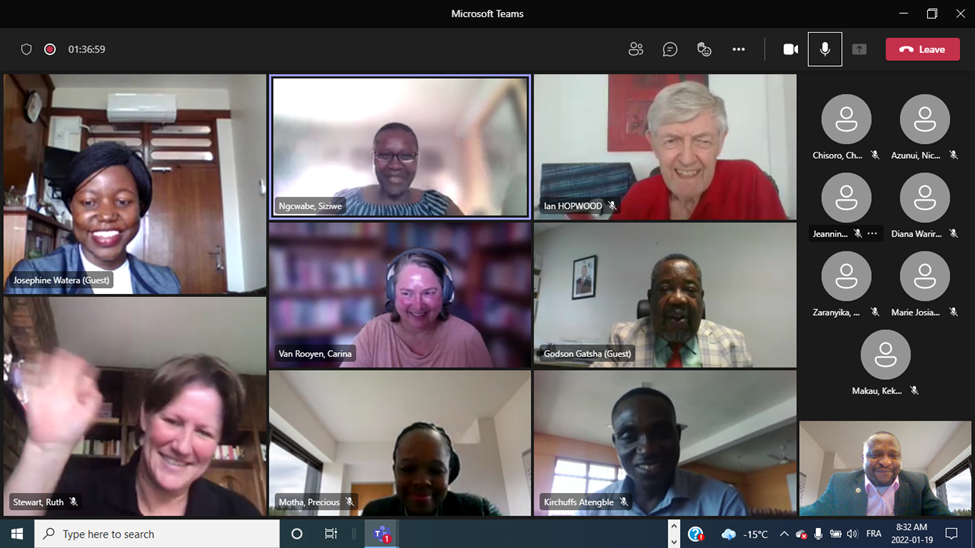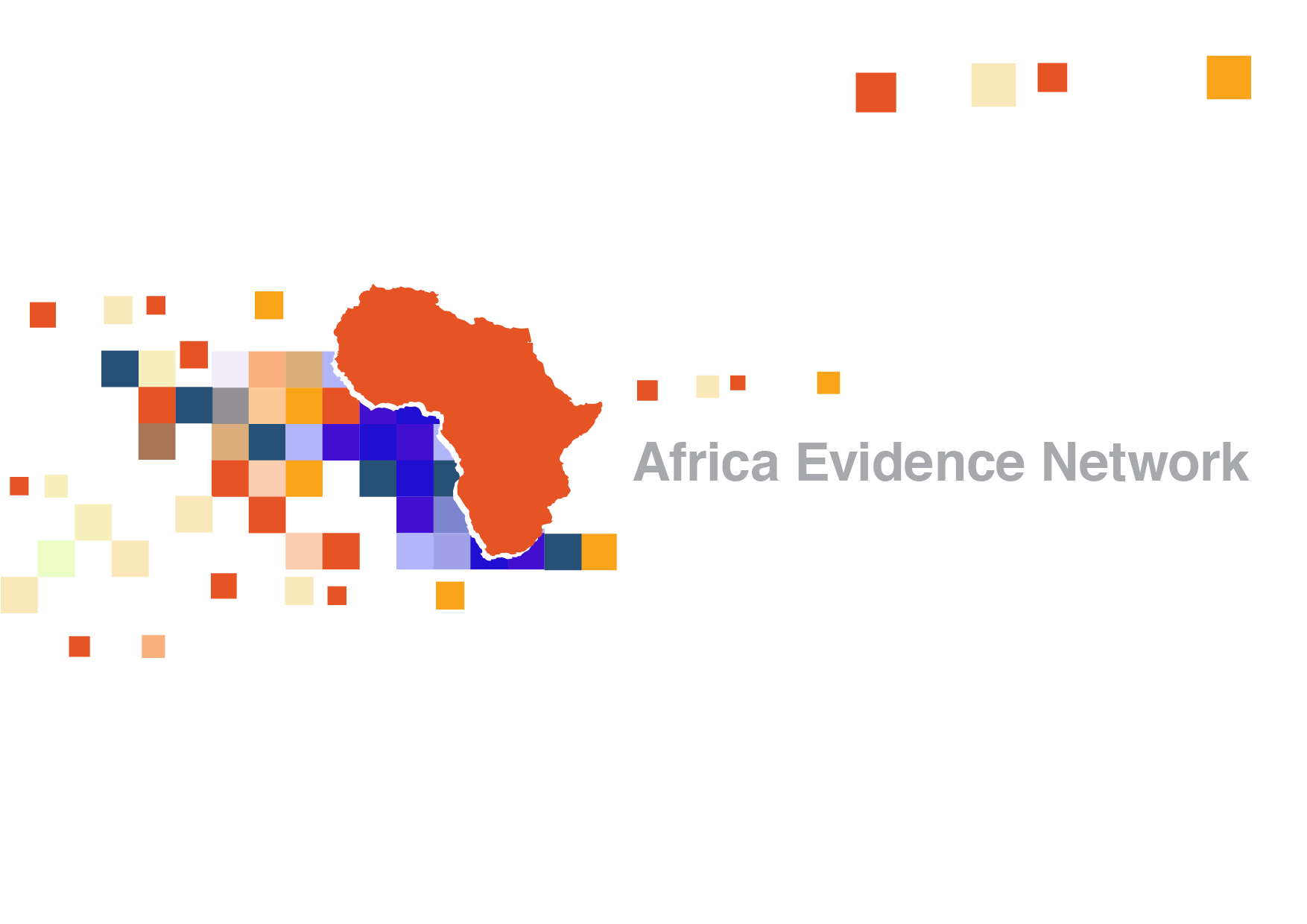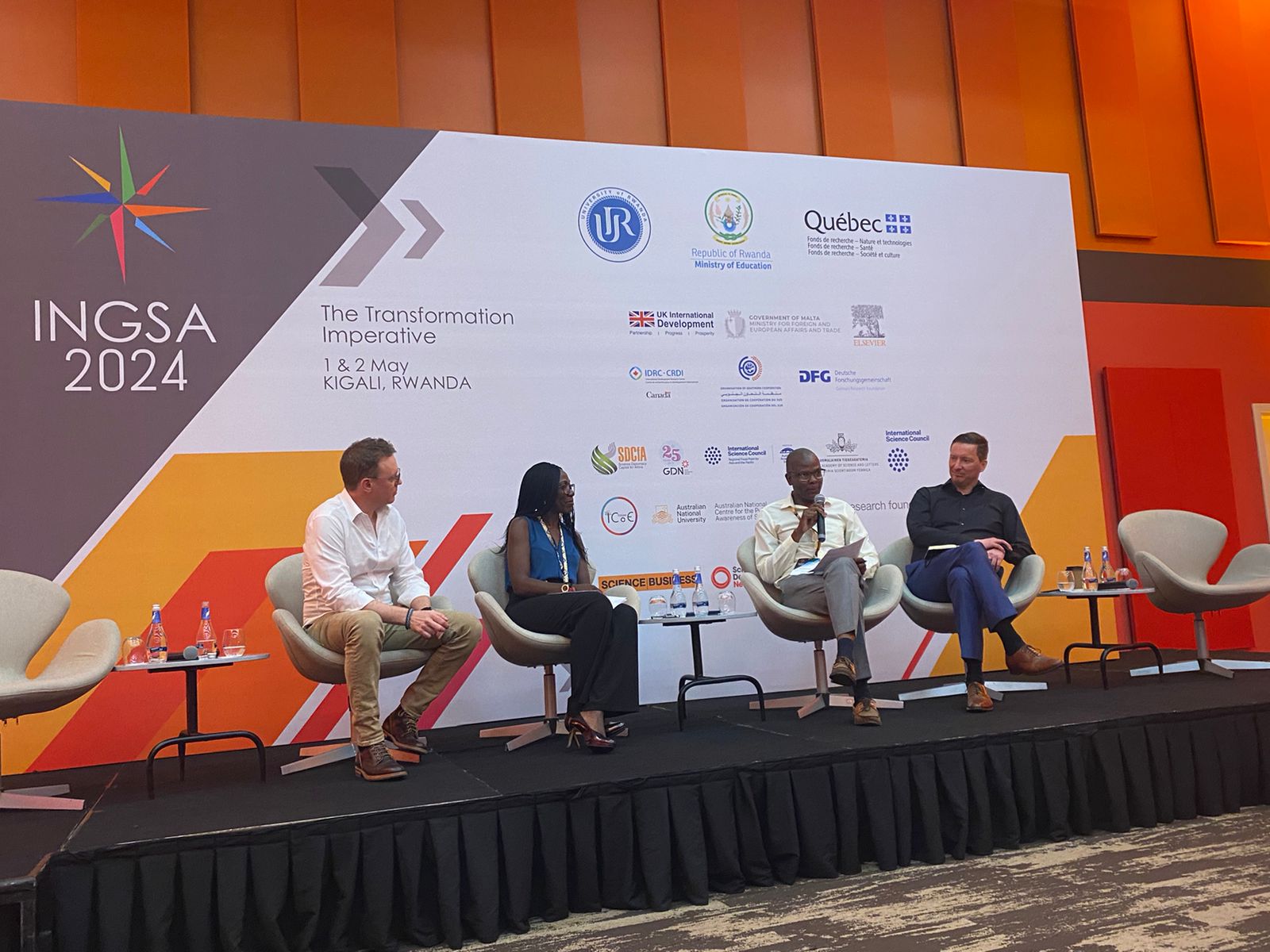
The International Network for Governmental Science Advice (INGSA) 2024 Conference held in Kigali, Rwanda from 1-2 May 2024 was a monumental event. I was privileged to participate as a panellist in two sessions, one on Artificial Intelligence (AI) where I was together with a fellow Africa Evidence Network (AEN) member and Co-Chair of the AEN, Dr Rhona Mijumbi-Deve and the other on Parliamentary Evidence "Push and Pull" Factors. It was intriguing that Professor Ruth Stewart, the AEN Founding Chair, was also later included on the AI and EIDM panel because it employed the Fishbowl method. Being with such great personalities in the African EIDM space was a truly inspiring experience. My session think-pieces are available for other members to view in the INGSA2024 Viewpoints. Other AEN members who participated in the conference included Mr. Gilchriste Ndongwe, a former INGSA Fellow from the Zimbabwe Evidence Informed Policy Network (ZeipNET) and Mr. Enock Musungwini from Pangaea Zimbabwe and member of the INGSA African Chapter steering committee.
The conference added a new and interesting perspective to my EIDM knowledge, which I hope will benefit other AEN members, with its emphasis on diversity, equity, and inclusion in the dynamic and iterative processes of science advice and science diplomacy. This understanding of EIDM provides a general framework for explaining how scientific collaboration among countries can address social issues and enhance international relations, as well as how science diplomacy can facilitate scientific collaboration. This aspect is particularly significant considering that usually those producing knowledge determine what evidence to generate and promote in decision-making. Simultaneously, the factors that define our identity and place of origin, such as race, gender, and class, among other societal variables, will sustain disparities in evidence generation and, by extension, its use in policy and practice. Consequently, it is imperative to enhance the capacities for science advice and science diplomacy through the creation of frameworks and associated instruments that do not sustain these disparities.
Our AI and EIDM session was fascinating because it demonstrated how AI-powered technologies now provide decision-makers with a more objective, inclusive, responsive, transparent, and rigorous approach to decision-making. AI-integrated systems can now rapidly synthesise and generate vast amounts of evidence. AI applications now make it possible for decision-makers to easily synthesise evidence, identify patterns, forecast, quantify uncertainty, and identify multiple policy alternatives by processing different forms of evidence and availing these in the most appropriate format. Additionally, decision-makers can now predict how decisions will turn out in the future and figure out how to avoid future policy challenges. There was a humorous moment when it was commented that using AI to enhance EIDM is akin to “cloning thousands Dr Rhona Mijumbi-Deves in policy institutions in view of her expertise in rapid evidence synthesis and imagining efficiency and effectiveness.” It was also observed that the majority of African policy institutions have ICT systems in place that have a great deal of potential to integrate AI and improve EIDM, which is encouraging.
The other session on Parliamentary Evidence "Push and Pull" Factors, emphasised the crucial role that networks play in improving EIDM in Parliaments and the ways in which research intermediaries or evidence brokers can support the development of national evidence ecosystems. create spaces where a variety of stakeholders, such as the media, educational institutions, think tanks, research centres, policymakers, and civil society, can engage and collaborate. Parliamentary caucuses tasked with supporting evidence use and championing related capacity development activities will provide the impetus for enhancing the broader ecosystem to integrate and institutionalise the evidence "push" and "pull" elements.
Using equity as a driving force to increase the body of evidence supporting scientific advice and policy was one of my main conference takeaways, and this was amplified in the final plenary. In light of the societal transformation imperative, equity needs to be a fundamental social norm and not an afterthought in every EIDM innovation. Making evidence more meaningful and pertinent is essential for decision-making; simply producing and synthesising evidence is insufficient. Convergence amongst the different EIDM actors is necessary to place equity at the heart of initiatives. Additionally, systemic change is needed.
Therefore, it is crucial to consider EIDM from this standpoint, which highlights the power of expanded evidence in the global transformation imperative and emphasises the value of collaborations and shared goals in tackling global issues, including coordinating national and international efforts. When we engage and empathise with a shared vision, increase engagement and accountability, and place the human at the centre of science advice and science diplomacy, evidence is fluidly absorbed into policy and practice. Fighting false information while defending intellectual freedom, advancing objectivity and quality, and building public trust are all necessary to achieve this. Ultimately, it is imperative that EIDM models recognise diversity and make sure that equity and inclusion are integrated into every aspect, from EIDM funding and technical support to innovations, associated partnerships, and collaborations.
About the author: Ronald Munatsi is the Director of the Zimbabwe Evidence Informed Policy Network (ZeipNET). ZeipNET works to interface evidence and policy through evidence synthesis initiatives, including institutional capacity building focusing on the interface between research and policy with an emphasis on strengthening capacities across individual, institutional and systemic levels.
Acknowledgements: The author(s) is solely responsible for the content of this article, including all errors or omissions; acknowledgements do not imply endorsement of the content. The author is grateful to Charity Chisoro for her guidance in preparing and finalising this article, as well as her editorial support.
Disclaimer: The views expressed in published blog posts, as well as any errors or omissions, are the sole responsibility of the author/s and do not represent the views of the Africa Evidence Network, its secretariat, advisory or reference groups, or its funders; nor does it imply endorsement by the afore-mentioned parties.
Suggested citation: Munatsi R (2024) Equity and inclusiveness: An animating principle in expanding evidence for science advice and policy. Blog posting on 16 May 2024. Available at: https://www.africaevidencenetwork.org/en/learning-space/article/324/
